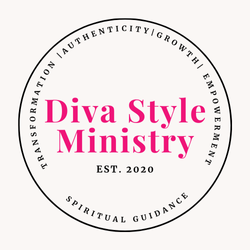Being self-aware is one of the most crucial keys to success, impacting every facet of our lives.
When we think about self-awareness, we often first consider how our strengths and weaknesses influence our professional lives. However, this understanding should extend beyond our careers; it plays a significant role in our relationships, family dynamics, parenting, and social interactions.
For some, identifying strengths comes naturally, while for others, recognizing flaws can become almost reflexive. It’s essential to cultivate a balanced view that encompasses both aspects.
How Do We Rate Ourselves?
Many of us are conditioned to compare ourselves to those around us, not just to assess our performance but also as a measure of success or failure in life.
From an early age, we are encouraged to work for excellence. We are rewarded for achievements and often face consequences for failures, leading to a mindset that equates worth with being the best.
This relentless pursuit of comparison can be exhausting and unsustainable. Instead of contributing to our growth, it can hinder our ability to appreciate our unique journey. It’s time to shift our focus from this exhausting cycle and learn how to leverage our strengths and weaknesses to our advantage. Yes, that’s right—our weaknesses can indeed work for us!
Know Your Strengths
Understanding your strengths significantly boosts your confidence.
And remember, strengths encompass every aspect of life, not just your job. For instance, if you thrive on structure and order, organizing parties and social events may come easily to you. You’re likely adept at managing various responsibilities in parenting, such as scheduling doctor appointments and attending school events.
Strengths aren’t merely about what you’re good at; they also include activities you genuinely enjoy. Maybe you have a natural talent for crafting or can effortlessly recreate intricate quilt patterns. This ability can feel like rocket science to someone who struggles with hands-on projects, emphasizing the beauty of diverse talents.
Know Your Weaknesses
Acknowledging our weaknesses is equally important.
Everyone has them, and that’s perfectly okay. Embracing your weaknesses can actually enhance your self-confidence. Recognizing areas where you may struggle allows you to make informed decisions, such as knowing when to say “no.”
For example, the most creative person may not excel in math. In such cases, it’s wise to refrain from taking on tasks requiring advanced mathematical skills. Similarly, if baking is not your forte, it may be best to skip volunteering for dessert duties at the next gathering.
However, completely avoiding your weaknesses isn’t always the solution; doing so can stifle personal growth and development. While it’s unwise to embark on projects that highlight your shortcomings, facing some challenges can lead to valuable learning experiences.
Why Both Strengths and Weaknesses Matter
Understanding your strengths brings you closer to your goals.
They encourage better relationships and can help you create and recognize pathways for career advancement. By being aware of your capabilities, you can make better decisions and open yourself to new opportunities for success.
Equally important is being honest about your weaknesses. When you accept your limitations, you’re better equipped to find creative solutions to achieve your goals. For example, many college students find public speaking daunting, yet passing a speech class is often a requirement for graduation. By recognizing this as a weakness, you can explore alternative strategies, such as incorporating visual aids or providing handouts to shift focus away from yourself.
Weaknesses are not inherently negative; they can serve as catalysts for innovative thinking and problem-solving. When we view our less favorable traits as challenges to be navigated rather than flaws to be fixed, we open ourselves up to a world of possibilities.
Embracing a Balanced Perspective
Ultimately, everyone possesses a blend of strengths and weaknesses. Recognizing both can be advantageous. The key is to acknowledge these attributes and leverage them in a way that propels you forward.
Instead of viewing weaknesses as obstacles, challenge yourself to find alternatives that utilize your strengths. This perspective shift can be transformative, enabling you to approach challenges with renewed confidence and creativity.
By understanding and embracing both your strengths and weaknesses, you pave the way for a more authentic, fulfilling life. Remember, self-awareness is a continuous journey, and every step taken toward understanding yourself is a step toward empowerment and growth.





